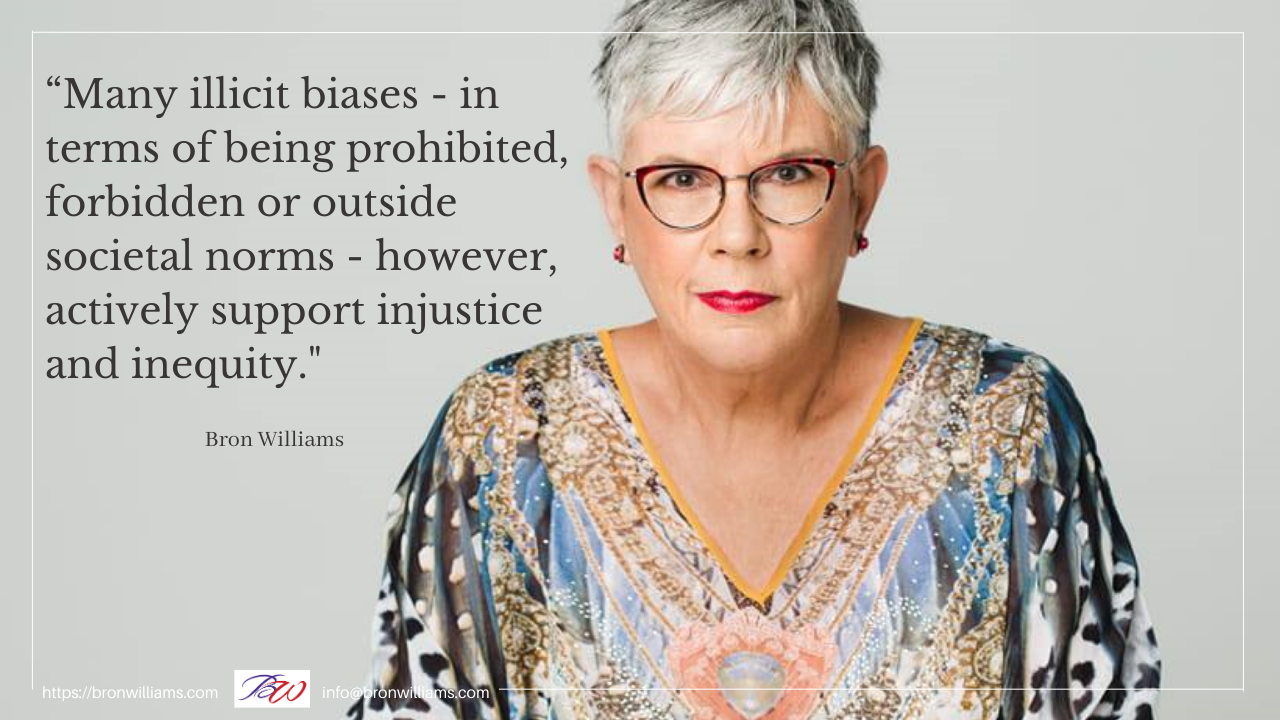Why do we hate racism?
Why do we hate racism?
Because it goes against our understanding of a shared humanity.

Pursuing a PhD by research is by its very nature an academic exercise. However, it is far more than that for me. At my core I seek to right injustices and build equity and inclusion. Many illicit biases - in terms of being prohibited, forbidden or outside societal norms - however, actively support injustice and inequity, and they run counter to the shared values that people build their lives on. There are three common illicit biases that people don’t want to associate themselves with – racism, sexism and ageism – which are based solely on aspects of being human that are completely outside our control.
I cannot control the genetic coding that is my racial heritage. Nor can I control the gender that was assigned to be at birth, governed by the particular arrangement of chromosomes – although people can change genders through medical intervention as adults. And people have absolutely no control over the moment in time in which they physically emerged into the world, marking their birth date and so their age. Over the next couple of weeks, I’ll unpack why it is that people find the illicit biases of racism, sexism and ageism particularly abhorrent.
First, let’s take a closer look at racism.
People cognitively acknowledge that they and others have no control over the racial group into which they were born. However, the tribalism connected with race - a tribalism that kept people groups separate and safe for generations when physical survival meant staying close to the tribe - leads to an ‘us vs them’ mentality that deems ‘us’ as right and ‘them’ as wrong, ‘us’ as in and ‘them’ as out, ‘us’ to be trusted and ‘them’ to distrust. Once this separation along racial lines became established and ingrained in the thinking within a particular racial group it’s a fairly easy step to attribute behaviours and attitudes to those outside the group that run counter to the values that the tribe holds.
While the values of a shared humanity remain – such as the need to be safe, to have a home, to have loving relationships and be involved in meaningful work - the specific values of the rightness of the tribe are stronger. This is, in part, because this sense of rightness of the tribe is deeply embedded in the thinking of those within in the tribe. And it’s when these embedded attitudes are challenged - often merely by the taunt of racism - that such an accusation is vehemently denied. This is because there is an implied understanding that shared humanity should trump tribalism.
Subconsciously people know they should value the humanness of those who are different to them, but they value more highly those who are like them. It’s this internal conflict between a shared humanity and tribalistic outlooks that results in passionate denials of racism at both personal and group levels.
As we begin to understand why we hold implicit biases, and why they spark such a feeling of defensiveness that we can begin to make choices about these biases – to continue to hold onto them or to intentionally work to ensure that they don’t impact the relationships we have with other people.